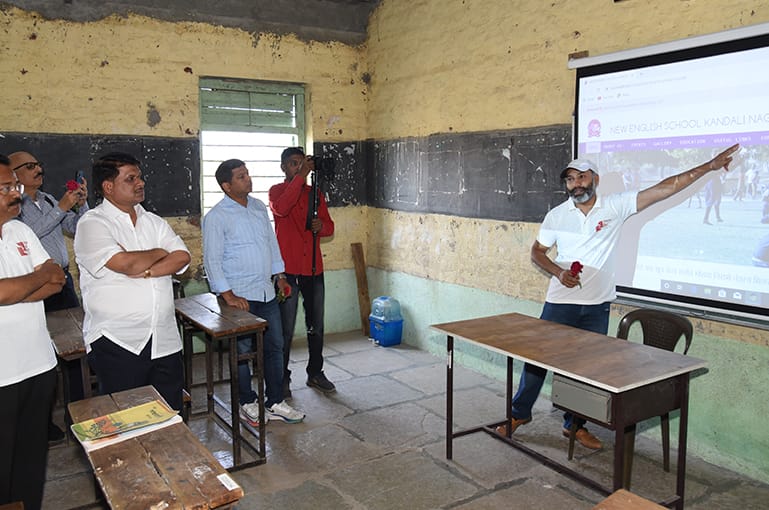
Education is a fundamental right, yet many students in rural areas face significant barriers that lead to high dropout rates.Understanding these challenges is crucial for educators and sponsors who aim to make a meaningful impact.
This blog explores the reasons behind student dropouts, the current state of rural education, and how the Traceable Giving Foundation is working to enhance the education system.
Challenges Leading to Dropouts

One of the primary reasons students in rural areas drop out of school is the lack of foundational skills. A recent report reveals that over 50% of Class VII students in rural areas struggle to solve basic division problems.
This alarming statistic highlights the inadequacies in early education that persist as students progress through school. The 2024-25 budget allocates a mere 0.4% of GDP to public education, underscoring the persistent neglect of this critical sector. Without sufficient funding, schools cannot provide the necessary resources and support to help students succeed.
Inadequate Infrastructure and Teaching Quality
Rural schools often suffer from inadequate infrastructure, which includes poorly maintained buildings, a lack of basic amenities, and insufficient learning materials.
These conditions create an environment that is not conducive to learning. Additionally, the quality of teaching in rural schools is often subpar.
Many teachers are underqualified or lack the necessary training to effectively educate their students. This results in a lack of engagement and motivation among students, further contributing to dropout rates.
Lack of Vocational and Life Skills Education
Another significant issue is the lack of vocational and life skills education in rural schools. Many students in these areas do not see the relevance of their education to their future employment prospects. Without practical skills that can lead to job opportunities, students are often unprepared for the workforce or further education. This disconnects between education and real-life application discourages students from continuing their studies.

The Traceable Giving Foundation is making strides to address these challenges and enhance the education system in rural areas.
Our initiatives include,
E-learning Classrooms and Computer Labs: By introducing e-learning classrooms and computer labs, the foundation is providing students with access to digital resources and modern learning tools. This enhances their learning experience and prepares them for a technology-driven world.
Books for Change: This initiative aims to provide students with a wide range of books, fostering a love for reading and improving literacy rates. Access to diverse reading materials helps students develop critical thinking skills and broadens their knowledge.
Science Lab and Equipment: The foundation equips schools with science labs and necessary equipment, enabling hands-on learning and experimentation. This practical approach to science education helps students understand complex concepts and ignites their curiosity.
Teacher Training Camps: Recognizing the importance of quality teaching, the foundation conducts training camps for teachers. These camps focus on modern teaching methods, classroom management, and subject-specific training, ensuring that teachers are well-equipped to educate their students effectively.
Smart School – Road to Digitalization: The foundation’s Smart School initiative aims to digitalize rural schools, integrating technology into everyday learning. This includes the use of smart boards, educational software, and online resources, making learning more interactive and engaging.
The education crisis in rural areas is a multifaceted issue that requires a comprehensive approach. By addressing the root causes of student dropouts and improving the quality of education, we can create a brighter future for these students.
The Traceable Giving Foundation’s efforts are a step in the right direction but continued support from educators and sponsors is essential. Together, we can ensure that every child, regardless of their location, has access to quality education and the opportunity to succeed.
